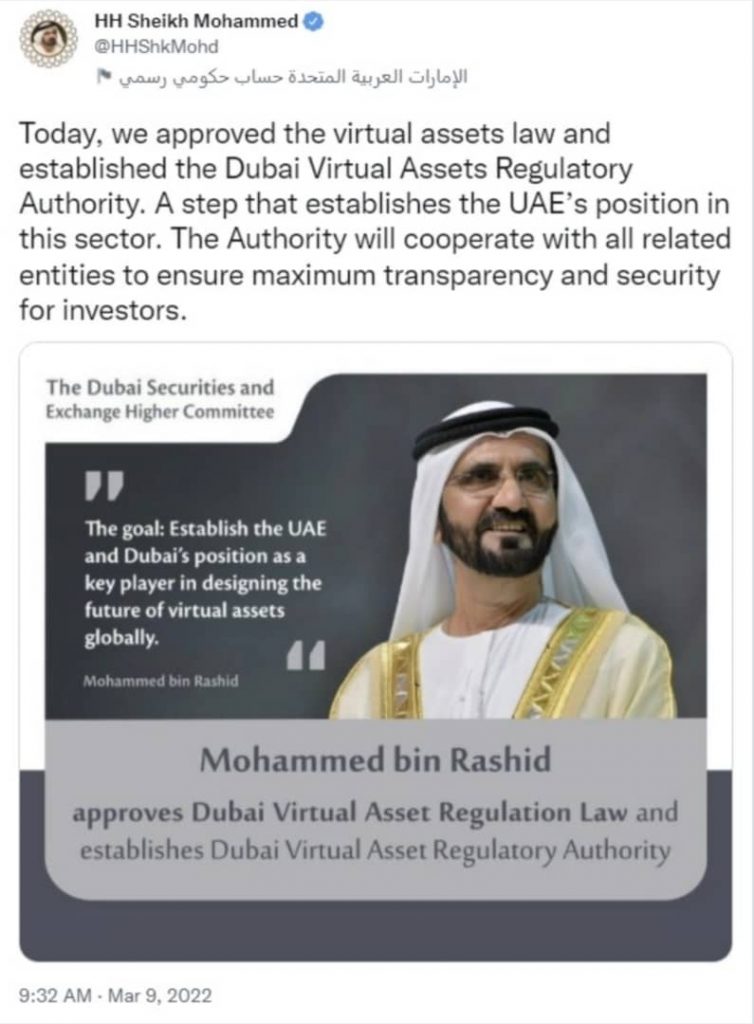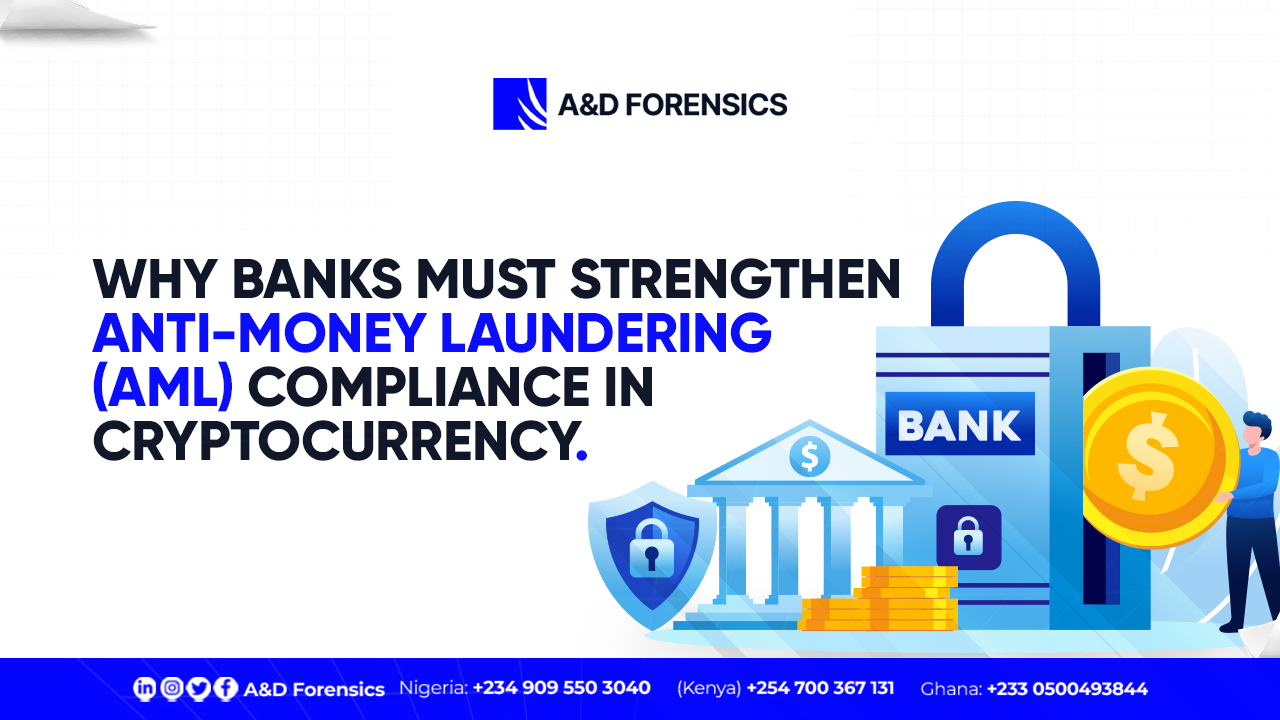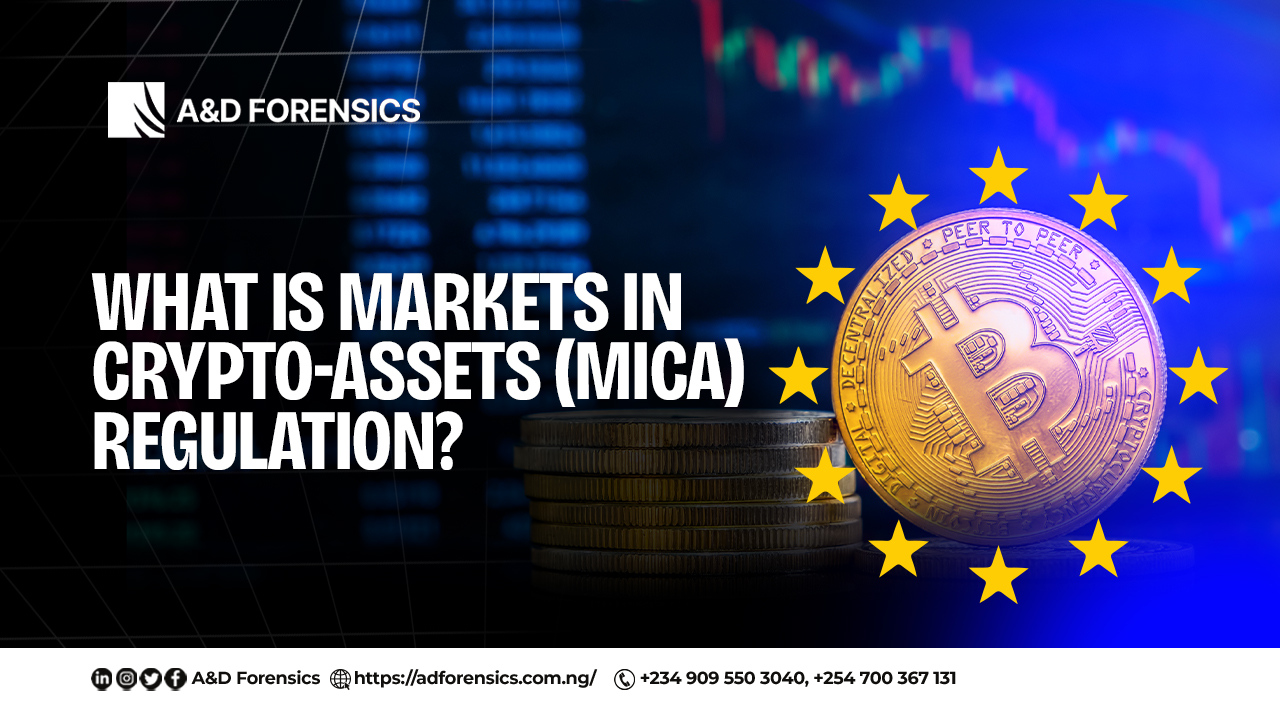The United Arab Emirate, UAE has implemented the Virtual Asset Regulatory Authority Law. UAE is a federation that consists of seven emirates whose border is between Europe and the Far East. The Emirate has been the hub of cryptocurrency trade and related commercial activities. The federation is a prominent regional actor in the Arab Peninsula’s trade that has attracted merchants from India and China into its market.
The UAE has also been regarded as a leading player in the blockchain and cryptocurrency space. This has been evident in increased interest towards hosting blockchain events. In addition, the display of great interest in innovative technology gives blockchain unbound space in the Sheikdom, a society ruled by a sheikh.
FATF Scrutinizes UAE Prior to Regulatory Law
Prior to the new cryptocurrency regulatory law, the UAE had cryptocurrency investors and traders from other countries. These investors believed Dubai is a fair place for them to thrive in investing in cryptocurrency-related businesses like real estate and so on. UAE’s desire to become a cryptocurrency powerhouse is part of a larger drive to wean itself off oil and gas. Consequently this has led to the possibilities of illicit actors and sanction evaders beginning to leverage on the UAE’s ecosystem.
To this effect, the Financial Action Task Force (FATF), on March 4, 2022 added UAE to their grey list. During FATF’s plenary session, FATF cited strategic flaws on UAE’s Regulatory Law to combat money laundering, terrorist financing, and proliferation finance. Despite UAE’s significant effort to improve systems and it’s ability to seize criminals proceeds, in collaboration with other countries, FATF feels there’s a need for improvement. The UAE in their response, agreed to strengthen their systems towards AML/CFT.
UAE Virtual Asset Regulatory Law Established
The prime minister and president of UAE, Sheikh Mohammed Bin Rashid announced the establishment of the Dubai Virtual Assets Regulatory Authority, VARA on March 9, 2022 through his twitter handle.
According to his tweet,
“Today we approved the virtual assets law and established the Dubai Virtual Asset Regulatory Authority. A step that establishes the UAE’s position in this sector. The authority will cooperate with all related entities to ensure maximum transparency and security for cryptocurrency investors and oversee the growth of the crypto currency asset business environment in terms of regulation, licensing and governance”.

The Dubai Virtual Assets Regulatory Authority, VARA, will be in charge of licensing and regulating the Virtual Asset sector. In addition, the UAE Regulatory Law Authority ‘VARA’ operates in partnership with Dubai World Trade Center Authority (DWTCA) giving it the need to secure investors’ data.
UAE Cryptocurrency New Law
Following the establishment of the United Arab Emirate regulatory authority, the Dubai ruler also announced that UAE joined countries like US, UK, El Salvador, Singapore, etc in implementing new cryptocurrency law which he employs people of this category to adhere to. The stipulated law includes:
- All cryptocurrency exchange and firms that support the cryptocurrency transfer must first register their business with the Dubai virtual asset Authority
- They must be certified before embarking on any crypto currency related activities
- The new policy will be applied across Dubai excluding other government owned free zones around main land areas.
UAE ‘VARA’ Law Exception and Possible Penalties
The UAE Virtual Asset Regulatory Authority, ‘VARA’ law applies to all the emirate which includes special development zones and free zones. The Law excludes the Dubai International Financial Centers (DIFC) which operates under the power of the Dubai Financial Services Authority (DFSA).
The Dubai World Trade Centre’s board of directors will establish an Act against offenders.The Act will include possible fines to be imposed on offenders. Meanwhile, VARA is permitted to take actions against individuals who do not comply with the UAE Regulatory Law by VARA. The offenders could be fined or have their permit suspended for not more than six months.
Conclusion
The UAE in partnership with FATF will work to proffer solutions that require improvement as reported by the Emirate News Agency. On that note, to avoid illegal money transaction the FATF recommends regulators to employ blockchain analytic tools to monitor transactions. Also, financial institutions, VASPs, MSBs and OTC traders are required to conduct due diligence and Enhanced Due Diligence where necessary.
A&D Forensics gives you a guide on compliance policies and helps you remain compliant. Contact us via contactus@adforensics.ng






